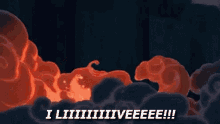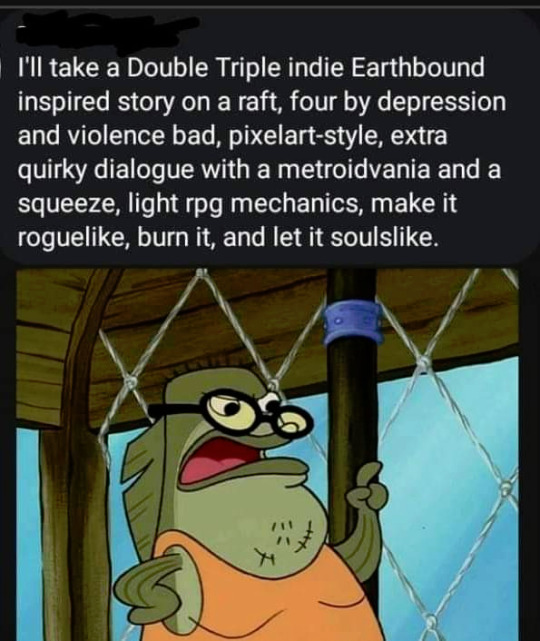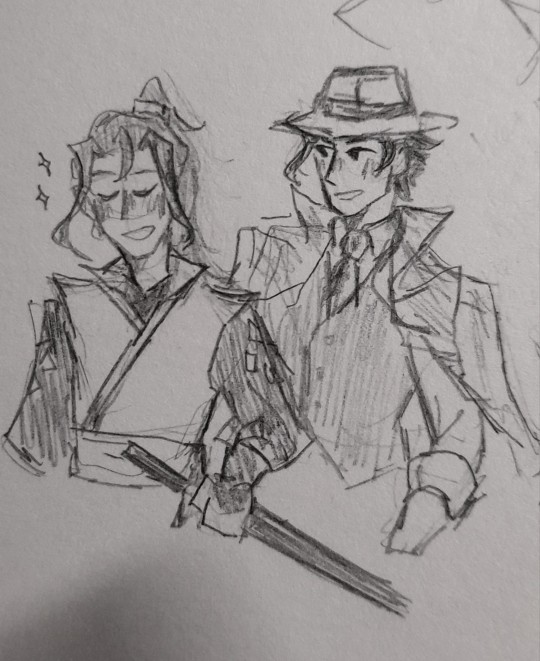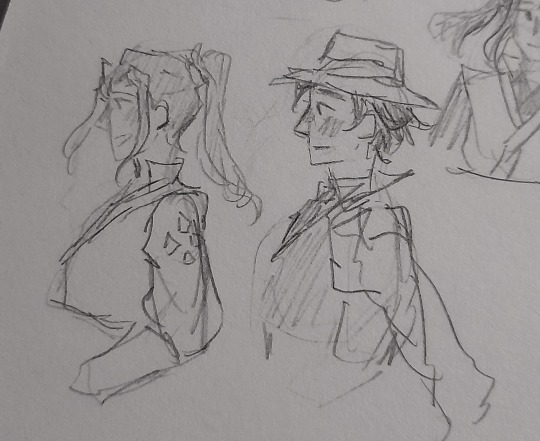#Celeste rants
Explore tagged Tumblr posts
Text

I'm baaaackk (did you miss me?) Have I been saving posts to spam reblog these past several days? yes. Have I been stalking my moots and lurking about? Also yes. But let's all be so serious for a minute.
Why was I gone?
As some of you might know, several days ago I found my works being shared on a slytherin boys TikTok account (@Slytherin_BoysFanf1c) who was claiming to have written MY work themselves. They didn't even bother re-writing or copy/pasting- it was literal screenshots off Tumblr with the same banners/dividers/everything. To be clear- I do not share my works on TikTok, any account on TikTok that has my work posted is not me and does not have my approval. I ended up making the mistake of asking this person to remove my work from their page to which they refused, and denied the work being stolen. I opened a ticket/report on TikTok and their account ended up being disabled from the platform.
By the next day, this person had tracked down my PERSONAL Instagram account (which I admit was a public account) and began harassing me.

Obviously this was an extremely stressful encounter, and not one that I ever thought I would experience. I did end up immediately blocking and reporting their account, and have not heard from them since, but please understand why I took a couple days to decompress and step away from everything.
The reason I share this with you all is because this was a very real and scary reminder for me that the internet can be a very dangerous place, so ALWAYS be careful with what you post and take this as a reminder of how easily information can be accessed.
I also want to reiterate what another writer said here a few days ago which is that I do provide all of my content on this site FOR FREE and I will lose nothing my just not posting. (other than validation, but I assure you all I'll survive). It is so, so disgusting to steal content, and even more so to track down someone's personal information. I admit that there were steps that I took that were wrong, like commenting with my personal TikTok account, or having a public Instagram page, but for real, it should be a given that those things aren't an invitation for harassment. Let's all act right and not be mean to strangers on the internet okay? Okay.
8 notes
·
View notes
Text
Ive started to realize no matter what group I'm in...I'm never enough. There's always a problem brewing somewhere and I'm always left out of it...great.
9 notes
·
View notes
Text
this is just kind of a big tangent but like I fucking hate when nerd ass losers see a game with even vague similarities to another game and go "ERMMM. HOW ORIGINALL (SARCASTIC). THIS IS JUST ANOTHER GAME IN THE STUPID TREND OF-" and then they list every genre/label under the sun to try and discredit the game as unoriginal by comparing it to other games. 90% of the time they haven't even played the game they're complaining about. they just see pixel art and get angry ig.

like look at this image. look at this and tell me it's not just alphabet soup. what do half of these words even mean. congrats on discovering what a genre is I guess?????????? good for you?????? do you want a fuckin award or something???? a little handclap??? shall I pour you a little glass of wine for being oh so smart and sophisticated for figuring out that Things Can Have Little Similarities Sometimes?????? just say that 7 years later you're still bitter that undertale got popular and leave oh my god "quirky dialogue" oh I'm sorry did you want your dialogue boring and soulless yeah let me just remove the personality from the game. here's your Nothing Burger I hope you're happy. "pixel art" oh so i guess like almost every game that came out in the 80s and 90s is actually just part of a so-called "2010s-2020s trend". These people genuinely think earthbound and celeste are "Basically The Same". it's not even an rpg. You had to throw in platformers in your disgusting word smoothie because otherwise you couldn't even find any real similarities besides "has a story and contains pixels". they think the psychological horror game Omori is just Undertale 2. yeah sorry guys Super Fuckin Mario Brothers is part of the quirky rpg metroidvania fjhksdgjhlkfgsdhkfgh-like diarrhea trend. cant play it now or you're cringe and bad. do you people ever get TIIIRRREEDDDDD. DO YOU EVER ENJOY THINGS. ON THEIR OWN MERIT. DO YOU EVEN GIVE THINGS A CHANCE. YOU'RE NOT SPECIAL FOR NOT LIKING THINGS YOU'RE BORING AND ANNOYING AS FUCK. I'm so fucking done

#im not gonna even unpack the meme format it's literally just “haha fat person said the thing so it's bad and cringe” like grow the fuck up#rant#this is just the notlikeothergirls thing except it's mostly grown ass men doing it so it's seen as more acceptable somehow#like “ERMMM I DONT LIKE POPULAR GAMESSSS... IM TOO COOL FOR THAT...” no one likes you#if they played the games and decided they weren't for them that'd be one thing. I can understand that.#not everyone is going to like the same things I like and I can live with that. that's fine.#but when you look at a game you so obviously haven't even touched#and decide it's terrible based on Nothing (aka Because It's Marginally Successful/Popular)#and then try to excuse that by somehow connecting it back to every other game you don't like no matter how big of a stretch it takes#that's shitty!#just say you don't wanna play it and leave people who like it alone#you don't have to moralize your taste in media#omori#celeste#earthbound#undertale#metroid#rpg#rpgmaker#indie game#indie games#indie rpg#games#gaming#video games
220 notes
·
View notes
Text
more Yume Celeste stuff
#nnnot even gonna say I'll get back to artfights#sorry i think i just kinda got burnt out from just doing it + the want to make my own stuff for me having a bigger...whatchamacallit to do#mmmaybe I'll get to it again#hopefully#rn i might just draw random mutual's characters outta the blue#shrug#art#digital art#my art#sorry for the tag rant#also not gonna tag celeste this time cause i didn't try replicating the style so uhhhhh#i at least shaded though!!! that's a rarity!!
29 notes
·
View notes
Text
i don’t know who to needs to hear this but instead of harping on at fic writers about what they put in their fics, find out if the interactive fic extension is something that can fix it and if not just don’t read it. this is like the fic equivalent “what about the people who don’t eat eggs flour and milk” under a pancake recipe and it’s getting to be too much for me when i see it out and about. you’re not entitled to someone else’s fic to suit you, especially when u’ve been warned ‼️‼️
8 notes
·
View notes
Text
ive seemed to lock myself into a state of like impossible-to-be-vulnerable-around-my-friends-anymore lol lmao AHHH



i talk too much write too much draw too much feel too much i just want it all to go awway!!!!! i just want to make art. i dont want any of the other things that comewith being human i just wantto make art. gggh
That being said i like . postng here ppl are really nice and everyones really nice abt my art and ideas and its so warm and nice and fulfilling so i guess it feels even emptier that i cant talk to my friends abt my ideas and stuff. like i mean i Can but i just :x i dont know. i clam up really hard because i just feel so stupid abt it. eeeee
ill get back to art and the usual longwinter posting soon . head in hands. clutches head
#cele talks#srry forthe rant :x im just. agh. i dunno. FACK#and its just the looming feeling of “well celeste if u were better at art surely u wouldnt be feeling thjis way” (no correlation) but also.
9 notes
·
View notes
Text
ONE MORE DAY TILL OCTOPATH AHHHHHHHH
here, take some hikari and partitio doodles





#octopath traveler 2#hikari ku#partitio yellowil#they <333#what would their ship name be???#hikartio???#idk#celeste draws stuff#im so excited for this game you have no idea#been ranting about it to my friends for the past 2 weeks#they still have no idea what octopath is.#hikari x partitio#hikartio#partkari
114 notes
·
View notes
Text
Also, I just finished the summit in celeste and went through the credits only to discover there is MORE game. I thought we were DONE, I CLIMBED the mountain at the cost of my sanity! I searched and discovered there are multiple multiple sides to the map... are you kidding? I love the idea, BUT I JUST SPENT NINE HOURS STRAIGHT JUST TO COMPLETE THE INITIAL CLIMB AND GAME, HOW AM I SUPPOSED TO PLAY MORE RIGHT NOW???
Why does the game not end (I don't really want it to end) why can't I find peace (I'm never at peace) and why would you crush my soul after reaching the top of the mountain (I'm bitter bc of how long it will take me because I have a little pea brain and have died a million times in this game).
Core...? What does this mean?? Why?? Core? I personally have no more Core, no more soul, no more morale, please stop my misery I can't do this (I am wanting to push myself put of spite but the game taught me better than this supposedly)
This is a lot of emotion I am experiencing right now
13 notes
·
View notes
Text
Tension, Flow, and Mastery in Action Games
Anyway here's my massive rant on game design, guest starring Mario, Kirbo, Ms. Celeste, Mr. Hollow Knight, John Miami, White (Neon Walter), err shove all night, and WELLTARO FROM HIT GAME DOWNWELL!!!
And Pizza Tower.
>------------------------------------<
I think that tension is the majority of what makes action based gameplay fun. Tension is derived from the need to make a move, particularly in deciding which one. Action games create higher levels of tension by giving the player limited time to make a decision, making the correct move uncertain, and judging how well they performed their actions. To examine further, I’m going to break down gameplay into four primary states. I’ll call them safe, hold, anticipation and window. Or shaw. That's a fun word, apparently it's synonymous with thicket.
Safe is when the player is completely safe, no tension. They could put their controller down and nothing would happen. When you’re on safe ground in a platformer, or behind cover in a shooter.
Hold is the equivalent of treading water, you’re holding a position, but you can’t stay there forever. The game generally requires that you do some simple action, like holding the climb button to cling to a wall in Celeste, or pogoing in Hollow Knight. When games try to pull extended tense sections, they often use this as the baseline to give the player time to think and recuperate, while ensuring that they know they aren’t out of the woods yet. Further this state often provides some kind of threat if they don’t get a move on. In Celeste clinging to walls drains an invisible stamina bar, and when you run out you’ll fall off to your death. In Hollow Knight you can technically pogo off a sawblade forever, but there's the unspoken threat of you messing up the pogo, screwing up the repeated simple action, and falling to your death, losing progress, so you better get to the next part before that happens.
The anticipation is defined by the player moving towards their next action. They can’t act yet, but sometimes the player is expected to line themselves up in preparation for when the anticipation state ends, which usually leads to the player finally having their window of opportunity to act, the time frame where they can actually perform their next action. Longer windows make pulling off the action easier.
For example a basic anticipation to window transition would be running up and jumping just before a ledge in Mario. If you jump too early you’ll fall into a pit, too late and the same will happen. If you pull it off during the window you’ll get across.
However anticipation does not always lead into window, for example when you’re descending from a jump onto a goomba, you use the anticipation to line yourself up, but there's no window. Once you land on him you’re set back to safe.
There’s many different ways action games use this kind of thing. It's fairly common for games that implement enemies as the primary hazard, like Kirby or Mario, to have the player turn the environment into safe zones as they go through. The player has to put themselves in anticipation and window as they say, dash towards an enemy to take them out, however they can do so whenever they please, because they’ve already cleared out all of the enemies behind them, and almost everything behind them is a safe zone.
On the other hand, some games space out their safe zones, giving the game most of the control over the pace. Thus the game can keep the pace cranked high to give the player less time to make decisions and make the gameplay more intense. Celeste and Downwell hold the implicit threat of falling to one's death over the player's head, having the player travel extended sections without being able to land on solid ground, increasing the tension by spacing out safe zones. Celeste allows the player to cling to walls for a decent bit of time, encouraging them to carefully plot out their actions but make a move before it's too late. In quite stark contrast Downwell gives gives the player a limited air stall ability, that can be used to hold them in place, allowing them to put themselves in hold temporarily, but the mechanic has many tertiary aspects in play to encourage the player to rely on it as little as possible, creating an intense adrenaline rush where you’re falling at max speed, pulsing the brake only as much as you need to steer.
Now, there's an interesting way this dynamic is changed when the player is forced to redo parts of a level. Maybe they got sent back to checkpoint, maybe they’re beating it again to satisfy a ranking system. Point is, when a player is made to repeat a level or part of a level they already beat, the way they approach it is different. I call it the flow to mastery transition.
The initial run is a pure flow run, what's important is that the player is unfamiliar with the path ahead of them, and they have to adapt on the fly. Their movement requires more care and planning. They make greater usage of the levels stills and holds to take everything in, and if they do not have control over the pace, then the tension spikes significantly such as in games like Downwell and Pizza Tower, as they have to use the few seconds the anticipation gives them to figure out their next move. The player's main focus is to avoid extrinsic flow breaks, which are factors outside of the core gameplay loop that serve as punishments for failure such as getting knocked back when you get hit and dying when that happens too many times, getting sent back to checkpoint, or the beginning of the level if you’re out of lives. The player needs to find a way through without dying.
The flow run begins a gradual transition to mastery the moment the player has to repeat an area, whenever they are sent back to checkpoint or the beginning of the level. The mastery is defined by the player using their preexisting knowledge of the level layout to try and find the most efficient route back to the new stuff. The player uses safe and hold zones much less, as they need to slow down less to take the level in, Safe and hold are treated as anticipation and window zones by the player, as they are much more likely to act as soon as the game lets them. Gameplay mainly centers around finding the perfect series of inputs to get through the set stage. The path to elucidating that series revolves around discovering the best route and picking out all of the little inefficiencies in gameplay.
The discovery is emphasized most when the player is uncertain of what the “correct” path, or the most efficient way through is meant to be. My mind flicks immediately to nonlinearity, more mazelike areas with many options, and we arrive at our first mastery case study, Hotline Miami. This game falls into the Celeste camp of 1 HP, checkpoints every five feet, trial and error your way through levels. As such the game puts all of its eggs into the mastery basket. The game is made up of a bunch of interconnected rooms, and you can hit up any adjacent one. Your goal is to hit up every room and kill everyone in it. Every death comes with the opportunity to either iterate on ones last strategy, or try a brand new one. If the player feels like they’ve hit a brick wall with their current strategy, they can choose to switch up the order in which they enter the rooms, and see if they can find a better one.
In addition to allowing the player to make their approach in any order they’d like, the game implements plenty of other tricks to increase the complexity and potential tension through new and uncertain choices of mastery development.
Guards are constantly on patrol, and if they stand beside a window or door you can get an immediate takedown. Should you wait for things to line up, barge in, or head for a different room. The important part is that the player has options, and that they are never forced to wait.
Further, the game implements what I’ll refer to as “soft blocks.” A hard block would be a wall, you can’t get through that. A soft block would be a long corridor with a guy wielding a shotgun at the end. You can’t get through there, with your fists at the least. You could go around and come in from behind, or if you grab a gun from another room you can blast him from the front.
The point is the player is provided with a number of complex choices they need to make, and a number of factors that make the optimal choice uncertain. They have many options, and all of them at least seem equally valuable.
The other interesting approach I’ve noted would be most prominent in Neon White. The game is a speedrun 3D platformer where you pick up guns represented by cards strewn across the level to shoot at stationary demons scattered everywhere, and once every demon is dead, get to the goal. Each level is designed for the player to initially blast through, then replay repeatedly to get a better time. Your first run will likely take you along the critical path. You see, the game takes place in a giant void, with a bunch of floating platforms everywhere. The player has many more options than just the ones that get them to the goal; they can get to any platform in jumping range, and many areas fill themselves with plenty of decorative platforms that seemingly only exist to make the place look nice. The critical path is communicated by the implied rules. The most famous example everyone likes to bring up is coins in Mario. They don’t do much, but the developer placed them in such a way that if you always follow them you should get to the end. Neon white uses demons and weapon cards in a similar fashion, where you’ll get to the goal with all demons defeated if you just follow.
Now, the reason this game is notable is because the critical path is rarely the fastest one. The game also throws in shortcuts. Shortcuts come from you defying the pointers outlining the critical path, and using the full extent of all options provided. You do not have to get every weapon, the only requirements for level completion are that you stand on the goal with all demons defeated. Further you do not have to get close to demons to defeat them, your guns are ranged weapons. The game just drills that mindset into you by placing cards and demons on the critical path. The player won’t have to go out of their way for extra weapons when they’re efficient with their ammo, and can skip parts of the critical path as long as their new route has line of sight with the demons.
The pointers give the level an immediate initial route, but with repeated attempts the player will gain greater understanding of all the options they have been given as their focus changes from simply getting through to getting through faster, and they will be able to discover the hidden shortcuts that rely on unused options placed throughout the level that the pointers constructing the critical path trained them to ignore.
In other words, to enhance the discovery of the mastery loop, you can either make your path an open maze, or a line with extra steps. As for the journey to perfection, to the perfect execution of inputs, there’s only one technique I know of to make that more interesting. I refer to it as intrinsic flow breaks.
Intrinsic flow breaks tend to be a short interruption worked into the core gameplay loop. They are less a failure on the players part as they are a measure of skill expression. While they have unique utility in individual games, they are generally used as something to minimize for speed incentivized players, but in both of these examples it comes packed with the bonus utility of making the game easier on your first try. They don’t necessarily have to stop the player, the main point is just that the player takes a small cut in speed.
Kirby makes for a pretty great example. In theory his ability to float over any obstacle should trivialize the majority of the game, however in practice the reduced speed from the float disincentivizes players from using it unless they absolutely need it. A metric defined by player skill where less confident players get an easy out of anything they can’t handle, while experienced ones use it as little as they can get away with so they can make good pace.
Pizza Tower shows what happens when you take a similar idea but crank the speed up to eleven. Peppino controls like a car with no brakes. Until you crash into a wall, you only ever go faster, so to help newer players get used to the games intense pace, intrinsic flow breaks are introduced. Moves where the player changes direction such as the turn around drift and super jump have Peppino pause for a moment before shiting direction, and allow newer players a second to get their bearings and break down the situation.
Pizza Tower likes to bake the intrinsic flow break into its catch all move for newer players, then add in more specific options that avoid the intrinsic flow break. For example you can avoid the pause during the super jump and turn around by choosing to climb walls instead of super jumping, or jumping off of them to turn around.
The way Pizza tower uses intrinsic flow breaks is especially notable because the methods to avoid them are context sensitive, they need a wall to pull off. They are not replacements, they are opportunities open to veteran players if they can spot them. They don’t change the gameplay, they build it up.
Other examples include having to punch enemies vs maintaining a toss combo in Gravity Circuit, bashing into enemies vs spinning through them in Anton Blast, whatever Plague of Shadows is doing. Made a whole video on that one.
Now, extrinsic flow breaks are what tie the flow and mastery together, so we’ll need to do a closer examination into extrinsic flow breaks in order to understand how flow and mastery play off each other. Just as a refresher, extrinsic flow breaks are the game's explicit failure conditions, such as getting hit and dying. They are what the player is primarily focused on doing during the flow run. Extrinsic flow breaks can be understood as two elements. The buffer, and the threat. The buffer is a degree of leniency the game extends to the player, allowing them to be inconsistent and still pass through. Most commonly expressed through health bars, their length is defined by the level of error and inconsistency the game is expecting and willing to let the player get away with. By allowing the player to slip up without losing progress, the constant introduction of unforeseen obstacles and by extension the flow run itself, is maintained. In addition, typically a degree of tension is added as their buffer shortens and they reach closer to the threat, which is of course what the game threatens to do if the player burns through their buffer. Usually sending the player back to checkpoint, it exists to demand a certain level of performance from the player. If the player's performance doesn’t match the difficulty curve, they’re made to repeat it until it does. The intention being that the increased skill from the practice will get them there, which develops mastery.
Now the following examples are just individual case studies. A small showing of games that use certain ratios of buffer to threat to accomplish a certain goal. They are in no way representative of the only thing that can be done with that arrangement.
Low health demands precision. In Mario games you have somewhat infrequent checkpoints, but also not terribly many hazards. The player has to be somewhat careful with their moves, but they aren’t expected to die terribly often, so the game doesn’t place checkpoints very often, as if the player does die they were likely either playing too risky, or had a simple mistake. Either way the player is unlikely to grind the level out, and the game focuses on easygoing flow. On the other hand Celeste only lets you get hit once and places spikes everywhere. As such it has to place a checkpoint down every couple of feet to ensure that the player keeps making progress. If the checkpoints were too far apart, then the player would surely master the first portion of the stage completely long before they even got close to the new stuff. The fun comes from the growth, but eventually the player is just grinding for a lucky run where they don’t screw anything up. The game ought to move the player along before that. Celeste can be a bit anxiety inducing at first, but when you repeat and practice the feeling transforms into a much more easygoing zen as the runs mesh together.
High health and somewhat frequent checkpoints brings to mind games like Shovel Knight and Hollow Knight, which have more focus on the player engaging the enemies with their combat mechanics as they traverse the world, and getting hit is a fairly expected part of the formula. Combat is a bit less precise compared to just platforming. Platforming tends to be about executing the correct path, while combat is more about avoiding and outputting damage. Platforming has very well defined anticipation and windows, whereas combat forces the player to constantly determine when it is safe to act through careful consideration of their current health, the enemies position relative to their own, lingering hazards, the opponents patterns, etc. The games have to place a fair number of checkpoints to catch the player if they fall in combat.
I can’t think of what high health infrequent checkpoints might represent from a general standpoint. Probably because the player would likely use the extra health to play riskier then die pretty far in and lose a bunch of progress, and that sounds very annoying.
The main issue I have with how extrinsic flow breaks are implemented with the traditional health and checkpoints system is that it’s rare that I find a game that can make both its initial flow and mastery development fun. Games that focus on flow often treat mastery as an obligation for players that can’t keep up. Without the considerations to extend mastery development, the player gets to perfection way too fast, and the mastery stops being fun. The mastery gets in the way of the flow.
On the other hand, games that put the development of mastery at the forefront lose the appeal of the flow by constantly interrupting the stream of new content with mastery development. I’d like a minute to take in all of the new stuff but the game keeps throwing me back to the start.
In search of a game that can pull off both, we come back to Kirby and Pizza Tower, as they both try to have their cake and eat it too. They try to make their flow accessible and easy to maintain and their mastery challenging with strong depth.
They put a lot of slack on the line, Kirby’s float will theoretically let you cheese anything as the player can just fly over any obstacle, ignoring the ability system will introduce a much simpler combat loop for boss fights, and the player is given a generous health bar. Peppino from Pizza Tower has infinite health, and can’t die until the escape sequence in every level, which does put the player on an explicit time limit, but gives them enough time to escape twice over. However, both of these games implement elements to incentivize experienced players to play faster, and tighten the restrictions for goals beyond completing the game.
Kirby goes the simple route and records the player's time. Oftentimes the game will implement side modes to show the player how fun it is to go fast. There will be obstacle courses and boss rushes that will give you medals if you can finish them under a certain time. The game knows it's more fun when you go fast, and tries to make sure the player gets that.
Pizza Tower has a more complex version achieved through its level rankings. In order to get the game's best rank, P, you need to meet a few requirements. You need to get a certain number of points by collecting objects throughout the level, complete all 3 secret rooms, grab the hidden treasure, complete a lap 2, and maintain a singular uninterrupted combo from the first room to the exit door. Your combo starts when you kill an enemy. It gives you seven seconds, and resets if you kill another. That means that you have to be constantly running as fast as you can to get to the next target before your combo runs out. On top of that, needing to do a lap 2 puts the excess time the game gives to newcomers to good use, significantly tightening the clock.
The most subtle mechanic however is likely the points dynamic. Points are received through killing enemies and collecting minor collectibles scattered through the level like coins in a Mario game. Smaller amounts are scattered in patterns to guide the player, but many more are hidden in big stashes throughout the level.
Because the smaller coin-like collectibles are intended to guide the player along the critical path, the player is going to miss plenty of them as they take shortcuts. This means that they’re already running tight on points, and if they need more they’ll need to find the stashes that can be collected most efficiently to make up for those lost points.
Further, the player can lose points through taking damage, and if they do they will likely have to get some of the less easy point caches placed later in the level, that may require the player perform a stylish trick or the like. The tension and challenge is enhanced by the fact that they haven’t been practicing that specific trick as they repeatedly attempt the level, which brings it much closer to the flow than mastery as the player needs to adapt to their slip up.
These games give the player a lenient formula, but ratchet up the challenge by having the gameplay radically change when you try to appease conditions that only veteran players will care about. Level rankings are about giving the game a broader range of appeal, as the player will either care, and go for the best one, or they won’t and waltz on through content with what they got. Games can keep their flow separate from their mastery development by splitting them into two separate experiences. This not only maintains the sanctity of the flow run, but makes the mastery development optional for those who strongly resonated with the game.
One method to do this that I didn't mention would be the pseudo New Game Plus, where you replay the whole game, same levels, but with a new character designed to speed through them. I know of three examples, Meta Knight from Kirby Super Star Ultra, Plague Knight from Shovel Knight: Treasure Trove, and The Noise from Pizza Tower.
To put it succinctly, Shovel Knight can jump 4.5 tiles horizontally and vertically; Plague Knight can fly. In fact all three of the mentioned characters are able to fly, in a platformer not designed around that. These games take characters with certain limits, design levels around those limits, then once you beat the game, let you replay those same levels as a character without those limits. This naturally increases the appeal of both the initial flow run and mastery development. The flow run is renewed as while you are somewhat familiar with the level layout, it’s been a while since you beat the first level, and further you don’t know how the new character navigates the first level. The mastery development is renewed because the level geometry has massively increased shortcut potential now that certain restrictions have been removed.
The new characters' much more expansive and freeing movement capabilities remove the emphasis of how the level wants you to navigate it, and places the emphasis on what your character can do.
#game design#video games#rant post#essay#super mario#kirby#kirby super star ultra#kirby super star#celeste#hollow knight#hotline miami#neon white#shovel knight#welltaro#from hit game#downwell#pizza tower#peppino spaghetti
15 notes
·
View notes
Text

I didn't bother answering it. Instead taking a screenshot of it.
Why is that you bother me when I post myself? I already have body issues. I post pictures of myself for my mutuals and myself. I want to find someone who actually cares about me. And it's tagged the way its tagged because I'm a yandere content creator.
Honestly it's people like you that make me feel less than worthy for people on here. I just want to make friends like me. But here you are (assuming you're a yandere creator or person since you're on the tags.), supposedly like me but judging me based on my looks? Idk if you're the same anon from before or not. But I am not harming anyone.
It's not cool to harass yandere creators because we're human too. You don't know what's going on beyond the screen. This could've been our final straw. And shame on you if you're supposedly apart of our community but hating me?
Kindly fuck off. I'm not in the mental headspace to deal with this tonight.
#non yandere post#celeste rants#like what did i do?!#is it not okay to post myself in a community i feel safe in?#yandere#yandere community#irl yandere#obsessive love
13 notes
·
View notes
Text
so i'm writing this series of stories. and i could not figure out how to do the chapter 2 i wanted. so i sidetracked to making a bunch of journal entries in 1st person by the character who's a spy and sells information, writing his notes on the lore of the story universe.
#rant#tbf#the character Celest does actually have his own book i am writing eventually... and have 3 chapters of#but those are 3rd person. why is the lore journal entries Celest 1st person?#because he's the one who shares info with others and im just imagining how he'd tell people this info#its the first time ive written 1st person in years#now im debating if his whole book should be 1st person or just the journal entries#also debating if there's a way to use the journal entries IN the book or if they'd just be my own little lore collection for reference#again a reminder that... if anyone would like to read my stuff. just message me ToT#i love sharing my oc writing ToT
3 notes
·
View notes
Text
I like how "Celeste" is described as "lenient" when it is among one of the hardest games I've played.
4 notes
·
View notes
Text
Honestly, I feel like only guys have the luxury of saying, 'I want my life to be unpredictable' or 'I hate predictability.'
Hell, my hormones are so all over the place that I just pray for some stability. And yet, every month my body still throws a new curve ball.
Why can’t I just get one predictable month? Please tell me I’m not the only one who feels like this!"
#celeste's rants#sorry for the rant#please free to ignore#i hate hormones#i hate periods#being a woman
6 notes
·
View notes
Text
okay SERIOUSLY fucking shoutout to all the folks who make music for celeste mods some of that shit is on another level and it is CRIMINAL it hasn't reached a wider audience
here's some of my favorite tracks from strawberry jam! i haven't finished it yet so if i missed any good ones please tell me!! and if there's any from other mods i would love to hear!!
Blueberry Bay by Ceph going on a walk to take my mind off things for a bit by BeanJammin Forest Path by catapillie Low-G Botany by Gix Raspberry Roots - Tree of Life Mix by BeanJammin Dusk City by MooseSR Madeline is Jump by Chepaki Starfruit Supernova by catapillie
some of these are just good songs and others of these get me genuinely emotional and that's not even all of the ones i liked!! and there's more in other mods like spring collab or standalone mods like glyph!! the collab mods are especially treasure troves because you get so many different genres all packed into a few albums of music ranging from ambient to emotional to just straight bops to what i can only describe as baba-core?? go give these soundtracks a listen if you at all like video game music or music in general, i beg you
#celeste game#celeste strawberry jam#music#slight rant but oh my god i cannot stop thinking about how much good MUSIC there is in there collabs
6 notes
·
View notes
Text
In this current time, I have no job, very little money, BUT DO YOU UNDERSTAND HOW MUCH MONEY I WILL GET TO PAY ANY ARTIST TO DRAW FULL COMIC STRIPS OF MY STORY RIGHT NOW?!
This is the dilemma I face daily like, I'm working on my music compositions, the designs for my stories & characters, as well as my main story & side stories that are scenes between my story & I just constantly see it in my brain & I just need money to get these comics cause MY BABIES! AHHHHLSZKDLGKANB LKJANB KJSRFGNAKJN!
Thank you for coming to my TedTalk
#that's it#that's the rant#am poor but want to pay for stories#its days like this that I was an artist#cause I'm telling you guys#the content of my story#would be eaten up right now#I'm so hype to finish this part of the first arc of my story#writers on tumblr#celeste writes
3 notes
·
View notes
Text
Gee, I forgot, didn’t I?
Vote to pick your preference, like and reblog to get your friends on top of it, but mostly… vote to help me choose! I’m very torn 😅
#kiki’s inner monologue#celeste#hollow knight#the room#gorogoa#this is gonna be fun!#not a book rant this time
2 notes
·
View notes